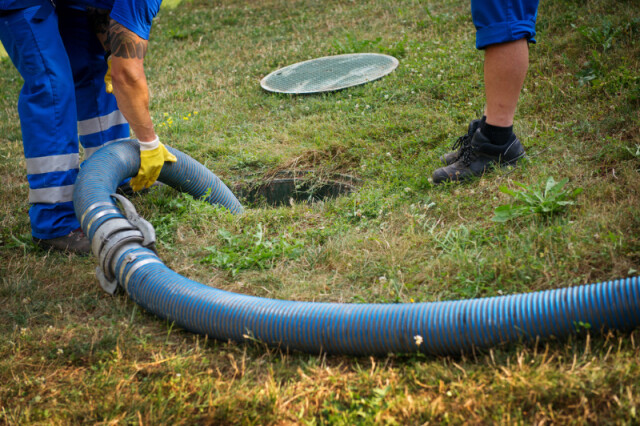Water saving tips when you have a septic system

The average person uses over 100 gallons of water each day. Making a few conscious decisions will help reduce that number. Reducing the amount of water the household uses can lengthen the life of your septic system and if you are on city sewer it will save you money on your water bill.
- A low flush toilet will help save you a significant amount of water by reducing the volume of water needed to pass waste through the plumbing and away from the home.
- Turn off the faucet while you brush your teeth. This can save you up to 3 gallons of water per day, 1095 gallons per year.
- Take a shower rather than a bath. A five-minute shower uses 10 to 25 gallons of water compared to an average bath that uses 35 to 70 gallons of water. A low flow shower head will also help reduce water usage.
- Washing a full load of laundry is the most water-efficient choice. Combine smaller wash loads into one and only wash when you have a full load. Every time the machine is used, you're consuming water, so consolidating washes will be more efficient.
- If you have a dishwasher, use it. You can use up to 27 gallons of water hand washing dishes compared to as little as 3 gallons with an Energy Star rated dishwasher.
- Fix a dripping faucet. A leaky faucet that drips at the rate of one drip per second can waste more than 3,000 gallons per year. That's the amount of water needed to take more than 180 showers!
- Fix running toilets. A leaking toilet can lead to a failing septic system. The additional water can over tax a septic system in no time.
- Fill a jug with tap water and place this in your fridge. This will mean you don’t have to leave the tap running for the water to run cold before you fill your glass.
- Invest in water-efficient equipment when you need to replace household products. You can get water-efficient showerheads, taps, toilets, washing machines, dishwashers, and many other water-saving products.
If you live in a house with a septic system, in most cases all the water you use goes to your septic system. You can lengthen the life of your system by reducing the amount of water that your septic system must treat.
